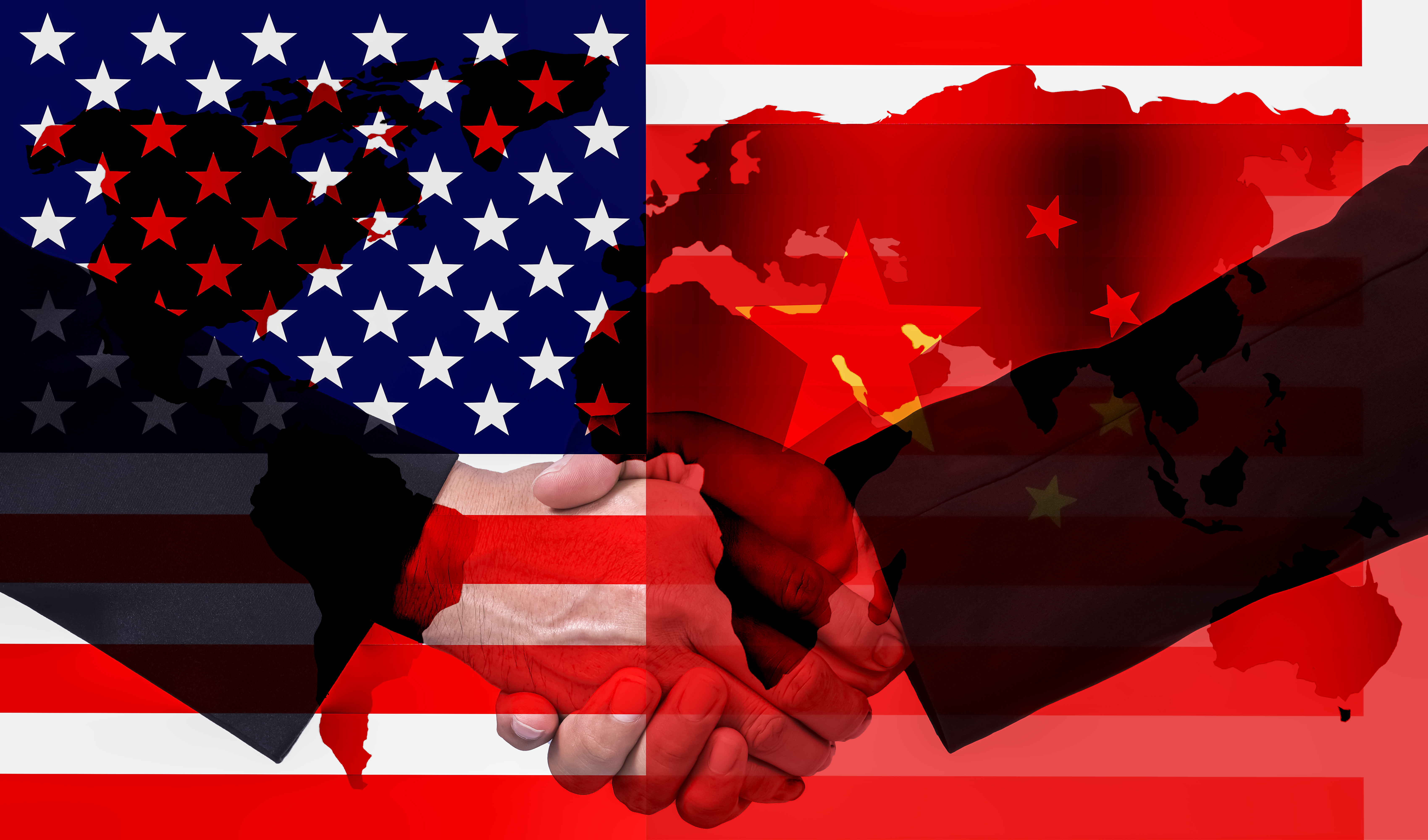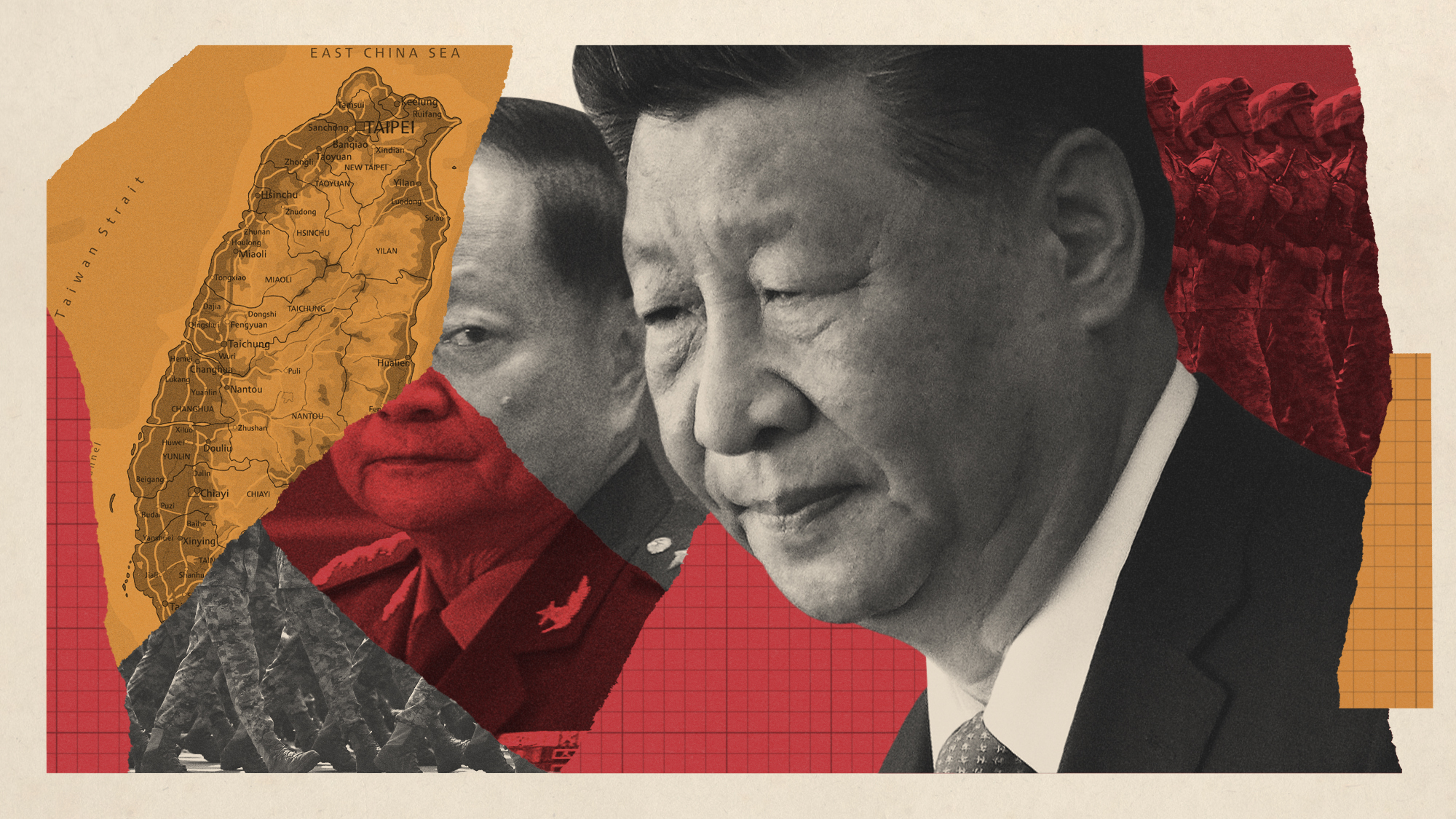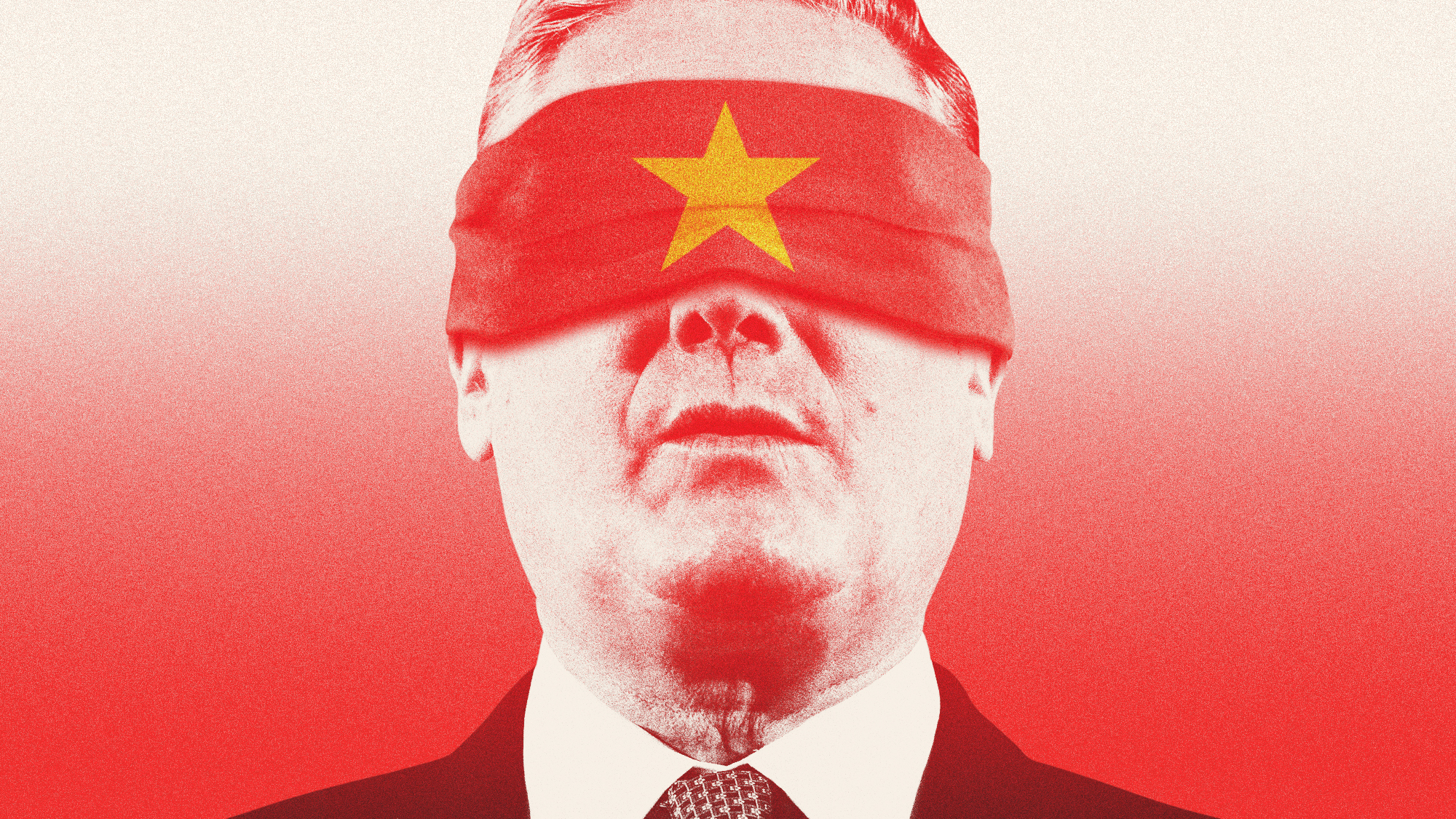Is it time for a thaw with China?
The 'delicate balancing act' for the Biden administration


A free daily email with the biggest news stories of the day – and the best features from TheWeek.com
You are now subscribed
Your newsletter sign-up was successful
Secretary of State Antony Blinken held what he described as "candid" talks with Chinese President Xi Jinping this week at the end of a two-day trip to China, the first by a top official in the Biden administration. The purpose of the visit was to dial back tensions between the two world powers over a host of issues, including Taiwan and trade. Blinken said he and Xi had made "progress," although the two leaders didn't reach an agreement on reopening military-to-military communications, a key U.S. goal.
Republicans criticized the Biden administration for even trying to smooth over differences with Beijing, saying it made the U.S. look weak given China's repeated provocations. Rep. Elise Stefanik (R-N.Y.), chair of the House Republican Conference, criticized Blinken for making the trip, which had been scheduled for earlier in the year but was postponed after a Chinese surveillance balloon floated over much of the United States in February before a U.S. fighter jet shot it down. Stefanik urged the Biden administration to "immediately cease their weak and desperate pursuit of a 'thaw.'"
Biden administration officials have said it is crucial to lower tensions with China to prevent miscommunication or accidents from escalating into a military confrontation. Recent "close calls" involving planes and ships in the South China Sea and near Taiwan have increased the sense of urgency, according to The Washington Post. Is now the right time to push for better relations with Beijing?
The Week
Escape your echo chamber. Get the facts behind the news, plus analysis from multiple perspectives.

Sign up for The Week's Free Newsletters
From our morning news briefing to a weekly Good News Newsletter, get the best of The Week delivered directly to your inbox.
From our morning news briefing to a weekly Good News Newsletter, get the best of The Week delivered directly to your inbox.
What are commentators saying?
A high-level visit like Blinken's is "a good place to start," said The Washington Post in an editorial. One visit, even by Washington's top diplomat, "will not be enough to get relations back on track." The State Department is right to "downplay" the prospect of a breakthrough anytime soon. "But it's essential to renew dialogue — especially military-to-military talks," because when the world's two biggest powers are butting heads there's no room for error. The last time a U.S. secretary of state visited China before Blinken's trip was when Mike Pompeo went in 2018. "It's past time for a resumption of dialogue."
There's nothing wrong with high-level diplomatic visits, said the National Review in an editorial, but the cost of getting Beijing to put Xi in a room with Blinken was too high. The U.S. has held off on releasing what the FBI learned about the surveillance devices China floated over key U.S. military bases with a balloon in February, deferring to China's desire to "sweep it under the rug." Additionally, "promoting human rights was a peripheral concern on this trip." If the Biden administration continues "to pull its punches to keep this process on track," it will project an image of U.S. "weakness" in what would amount to "national-security malpractice," rewarding Beijing's "strategy of escalation to force engagement," which will make us less safe "over the long run."
"Xi's decision to re-engage with the U.S. doesn't mean he is abandoning his long-term goal of reasserting Chinese primacy in the region and beyond," but it's still "significant," said Walter Russell Mead in The Wall Street Journal. Blinken didn't retreat on U.S. efforts to impose "controls over tech exports" and strengthen "defense ties with countries in China's front yard." China can't afford to continue "confronting the U.S. at every turn to force the Biden administration to change course." Its economy is struggling and constant "saber-rattling," along with its support for Russia's war in Ukraine, has only strengthened U.S. security times in Europe and Asia. Blinken's mission was "shrewd," because it forced Xi to shake his "outstretched hand" or be seen as the cause of "any further deterioration in the regional environment."
What's next?
"After months of sky-high tensions between Beijing and Washington — over alleged spy balloons, human rights issues, and even TikTok — both sides seem ready to come to the table," said Tori Otten in The New Republic. But this is going to be "a delicate balancing act for the Biden administration." President Biden is running for re-election next year, and one of former President Donald Trump's "most-repeated attacks" has long been "accusing Biden of being 'soft' on China." Republicans are already repeating the same chorus, which will only get louder as the 2024 presidential campaign picks up. "Biden faces a difficult political task in the coming months: Improve relations with Beijing without damaging his reelection chances."
A free daily email with the biggest news stories of the day – and the best features from TheWeek.com
Harold Maass is a contributing editor at The Week. He has been writing for The Week since the 2001 debut of the U.S. print edition and served as editor of TheWeek.com when it launched in 2008. Harold started his career as a newspaper reporter in South Florida and Haiti. He has previously worked for a variety of news outlets, including The Miami Herald, ABC News and Fox News, and for several years wrote a daily roundup of financial news for The Week and Yahoo Finance.
-
 James Van Der Beek obituary: fresh-faced Dawson’s Creek star
James Van Der Beek obituary: fresh-faced Dawson’s Creek starIn The Spotlight Van Der Beek fronted one of the most successful teen dramas of the 90s – but his Dawson fame proved a double-edged sword
-
 Is Andrew’s arrest the end for the monarchy?
Is Andrew’s arrest the end for the monarchy?Today's Big Question The King has distanced the Royal Family from his disgraced brother but a ‘fit of revolutionary disgust’ could still wipe them out
-
 Quiz of The Week: 14 – 20 February
Quiz of The Week: 14 – 20 FebruaryQuiz Have you been paying attention to The Week’s news?
-
 The UK expands its Hong Kong visa scheme
The UK expands its Hong Kong visa schemeThe Explainer Around 26,000 additional arrivals expected in the UK as government widens eligibility in response to crackdown on rights in former colony
-
 ‘Hong Kong is stable because it has been muzzled’
‘Hong Kong is stable because it has been muzzled’Instant Opinion Opinion, comment and editorials of the day
-
 What do Xi’s military purges mean for Taiwan?
What do Xi’s military purges mean for Taiwan?Today’s Big Question Analysts say China’s leader is still focused on reunification
-
 What is at stake for Starmer in China?
What is at stake for Starmer in China?Today’s Big Question The British PM will have to ‘play it tough’ to achieve ‘substantive’ outcomes, while China looks to draw Britain away from US influence
-
 ‘It’s good for the animals, their humans — and the veterinarians themselves’
‘It’s good for the animals, their humans — and the veterinarians themselves’Instant Opinion Opinion, comment and editorials of the day
-
 What is China doing in Latin America?
What is China doing in Latin America?Today’s Big Question Beijing offers itself as an alternative to US dominance
-
 Is Keir Starmer being hoodwinked by China?
Is Keir Starmer being hoodwinked by China?Today's Big Question PM’s attempt to separate politics and security from trade and business is ‘naïve’
-
 Looming drone ban has farmers and farm-state Republicans anxious
Looming drone ban has farmers and farm-state Republicans anxiousIN THE SPOTLIGHT As congressional China-hawks work to limit commercial drone sales from Beijing, a growing number of conservative lawmakers are sounding an agricultural alarm
